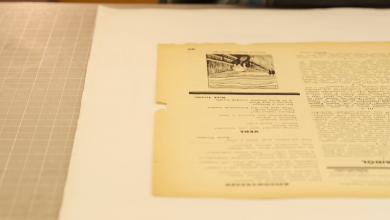Times Critics Discuss 2021 in Books, From Breakout Stars to Cover Blobs

Each year around now, The New York Times’s book critics choose their favorite books from among those they reviewed over the previous 12 months. We also ask them to gather to discuss their years in reading in broader detail. This time we welcome our newest critics, Molly Young and Alexandra Jacobs, to the conversation. Below, Dwight Garner, Jennifer Szalai, Young and Jacobs talk about older books they read for the first time, authors who inspired and disappointed them, and more. — John Williams
What were some of the books published in 2021 that you didn’t review but admired?
MOLLY YOUNG Jeff Chon’s “Hashtag Good Guy with a Gun” was superb enough that I read it despite two powerful obstacles: 1) The presence of the word “hashtag” in the title and 2) The fact that I spilled chili oil all over my copy, which turned the first 30 pages completely transparent and orange. A very funny book about conspiracy theories, masculinity and the internet.
DWIGHT GARNER Andrew Sullivan’s stuff is astringent and humane and, crucially, unpredictable, and I read his “Out on a Limb: Selected Writing, 1989-2021” in three or four sittings. Gary Shteyngart was back in top form this year; we’re lucky to have that guy. The new books of poetry from Kevin Young and Louise Glück, two favorites, were treats. Lauren Oyler’s novel, “Fake Accounts,” was more than promising; I’m not alone in wondering what she’ll do next.
JENNIFER SZALAI Eyal Press’s “Dirty Work” — about hard, morally troubling jobs, like piloting kill drones and working in slaughterhouses — was terrific: learned, patient, unflinching, powerful. I was impressed by Clint Smith’s “How the Word Is Passed,” which traces the geographical legacy of slavery. Reading Tove Ditlevsen’s “The Copenhagen Trilogy” was so unsettling as well as so pleasurable that it’s bound to be one of those books I return to again and again. “The Loneliest Americans,” by our colleague Jay Caspian Kang at Opinion, has been subject to a lot of spirited discussion already, and I think his exploration of class and identity among Asian Americans will be talked about for years to come.
ALEXANDRA JACOBS I reviewed so much less than you all this year that this is more a cloverleaf than a roundtable, but: especially in the light of Stephen Sondheim’s recent death, his collaborator James Lapine’s memoir and oral history “Putting It Together” — let’s call it a “them-oir” — for pulling back the curtain on “Sunday in the Park With George,” one of the most meaningful musicals in (and on) creation; Heather Clark’s biography of the little-explicated poet Sylvia Plath, “Red Comet,” for defiantly coming in at a “Power Broker”-like 1,100-plus pages; and the novels by Sally Rooney, Patricia Lockwood and Lauren Oyler addressing how the internet has transformed interpersonal communication — though I’m still waiting for something like what Nicholson Baker’s “Vox” did for phone sex.
Who are some of the best writers that emerged (on your radar) this year? Or writers who took a step forward in their work (in ambition or craft) that you considered significant?
GARNER Quentin Tarantino’s novelization of “Once Upon a Time in Hollywood” was pure power pop. Reading it was like finding Cheap Trick on the radio in 1978. Anthony Veasna So’s posthumously published story collection, “Afterparties,” made you feel he was only getting started.
The novel of the year, to my mind, was Atticus Lish’s “The War for Gloria.” I was as thrilled by it as Mencken said he was upon first reading Dreiser’s colossal “Sister Carrie.” Lish is really going for it in this realistic novel. It’s a roughly textured rush of sensation, and largely indifferent to style, because he can afford to be.
YOUNG I freaked out over “Once Upon a Time in Hollywood” too. It made me titter, chortle and howl — all the different genres of laughter. You can tell Tarantino had so much fun writing it.
JACOBS I was dazzled by the daring and imagination of “The Final Revival of Opal & Nev,” by Dawnie Walton, which I reviewed before officially becoming a critic for The Times. And I noted with interest Alison Bechdel brightening her color palette in her timely yet highly personal examination of exercise and mind-body transcendence, “The Secret to Superhuman Strength.” (Goddess knows we need that right now!)
SZALAI I was happy to be introduced to the work of Albert Samaha, whose family memoir, “Concepcion,” merges a roiling history of the Philippines with an intimate portrait of his immigrant mom.
I had already been reading the philosopher Amia Srinivasan in The London Review of Books, but there was something exhilarating about reading her at length in “The Right to Sex.” She engages so deeply with the ideas of others, showing what’s useful while also acknowledging what’s troubling — a real feat at a time when it seems as if nearly every discourse lurches between two modes: worship or denunciation.
Did anyone in particular disappoint you?
SZALAI I wanted more from “A Splendid Intelligence,” Cathy Curtis’s biography of Elizabeth Hardwick — but then maybe I should have taken a cue from Hardwick herself, who derided the entire genre of literary biography (unfairly, I think, but she was unfailingly stylish about it).
JACOBS I very much admire Lionel Shriver and plunged eagerly into “Should We Stay or Should We Go,” her novel about an aging couple who make a suicide pact, but I found its Choose Your Own Adventure-style looping, while technically impressive, more confusing and less convincing than a similar, simpler device in “The Post-Birthday World.” (Though maybe its confusions were meta-commentary on dementia? Scratching chin emoji.)
Also: the cover designers who persist in pandering to Instagram with those titles in Futura or ’70s-retro fonts against lush, colorful backgrounds. They are this decade’s version of “the plague of women’s backs” that Chloë Schama identified in 2013 (bicycles were a thing for a while, too), and they’re starting to weary the eye before the spine is even cracked.
YOUNG Yes! Revenge of the blobs. I loved this piece on the trend. These days you really have to turn to the university presses and small presses for satisfyingly unexpected book covers.
GARNER Joy Williams is one of my heroes — her novels and stories are, for me, desert island choices — but her new novel, “Harrow,” sort of wanders into the weeds and doesn’t quite come back out. It’s still Joy Williams, though, so you could easily do worse. Richard Powers! His new novel, “Bewilderment” — perfect title — was so soft and earnest and coyly proud of its ecological politics (what reader thinks we shouldn’t save the planet?) that it made me want to leap to my death from a scenic overlook.
What about books not published in 2021 that you read in the past 12 months? Anything you would especially recommend?
GARNER I read Elmore Leonard’s “Swag” for the first time, or rather I listened to it on Audible. The witty, bone-dry dialogue made a long car ride go by in a flash. I wrote Larry McMurtry’s obituary this year. Afterward, several people wrote to tell me I’d neglected to mention what they thought was his best novel, “All My Friends Are Going to Be Strangers.” They were right: it’s a stone, hilarious classic.
YOUNG Jade Sharma’s “Problems” is a dagger of a novel from 2016. The narrator is a young woman juggling three dysfunctional relationships: one with her husband, one with her lover, one with heroin. I raced through the book in one spurt and had to switch from chair to foam roller midway through so I could reach the end without ruining my neck. The author died in 2019 at age 39, which is a terrible loss. But what a book she left us.
I also got pretty obsessed with José Eduardo Agualusa’s “A General Theory of Oblivion,” first published in 2012 and translated into English in 2015. It’s about a woman who barricades herself into an apartment on the eve of Angolan independence and lives off pigeons for 30 years. With a premise like that…
JACOBS Honestly, in 2021, desperate for escape from current events, I read mostly books not published in 2021, or even in the last century, like “The Eustace Diamonds,” by Anthony Trollope. I also savored Edith Wharton’s “Roman Fever and Other Stories” this summer, having happened upon it at the great Manchester by the Book. Speaking of Wharton, I see even she has been blobbed! Is nothing sacred?
Molly and Alexandra, you both started as book critics for The Times in September. Any all-time favorite books of criticism that you would recommend people delve into over the holidays?
JACOBS John Updike’s “Hugging the Shore” and “Odd Jobs” are the bookends of my Updike Shelf (about which, another time). Here was someone who didn’t have to review or consider his contemporaries or predecessors, and yet industriously, prolifically did. What generosity.
YOUNG Martin Amis’s collection “The War Against Cliché.” His flow is insane.
JACOBS Wait, I meant to say that! Well, Amis has written about Updike and Updike about Martin’s father, Kingsley, so maybe this is a male literary turducken….
What offerings in the culture this past year were most likely to draw you away from reading a book?
GARNER I lived for five months this year in New Orleans, and it was a delirious place to be as Covid restrictions began to ease. I spent a lot of nights in jazz clubs on Frenchman Street, and in the backyard at Kermit Ruffins’s Mother in Law Lounge.
I burned out on Netflix and other streaming services this year. They began to make me feel like a bird trapped in a shopping mall. I spent more time on YouTube. The trick is to make lists of people — let’s say, Dick Gregory and Jessica Mitford and Isaiah Berlin and Rita Dove and The Fabulous Moolah and Oscar Zeta Acosta — and watch what turns up after your search. It’s like having a network of one’s own.
SZALAI I’m jealous of Dwight’s nightlife in New Orleans because I still haven’t so much as seen a movie in theaters — but I’m planning to remedy that soon. I did take advantage of my family being away recently to stream some of the horror movies they refuse to see, including “The Wicker Man,” which I thoroughly enjoyed, though the creepy-to-campy ratio was off for me; maybe the idea of a chaste, frantically uptight police sergeant swooning over a weird innkeeper’s daughter seemed less silly in 1973, when the movie was made.
The film production company A24 recently came out with a cookbook, “Horror Caviar,” which includes the pastry chef Natasha Pickowicz’s recipe for a white chocolate mousse and walnut dacquoise torte (try saying that fast five times in a row). The photographs of the smashed torte, its bright red jam oozing, make it look both delicious and macabre. I can’t wait to make it, and to see “Possession,” the film from 1981 that inspired it.
YOUNG I like to keep the voices in my head company with other voices, often in podcast form. I stockpile episodes of Open Source and then listen nonstop on days when I have to machete my way through a jungle of household chores. I suggest starting with the episode featuring Cornel West and Susannah Heschel or the conversation with Rebecca Solnit about George Orwell. The host, Christopher Lydon, is a generous and spirited interlocutor who can talk about anything. Anything! Sometimes I try to think up topics that might stump him and then inevitably find an episode on that exact topic lurking in the archives.
Whenever a new episode of Alex Kaschuta’s Subversive Podcast appears, I contort my entire schedule to fit it in. As with many of the best things in life, it costs money — you need to subscribe to access the full library — but some episodes are available for free, so you can try a little taste on your podcast app of choice and see if you like it.
JACOBS On the contrary, finally watching “The Crown” made me want to read everything I could on English royalty, a subject that hasn’t attracted me since I was, oh, 9? Specifically Prince Philip and Wallis Simpson, both itchy outsiders who played along up to a point. (No desire to see the “Diana” musical, though, even before reading Jesse Green’s review in the Times — this seems like the epitome of too soon.) And not unrelatedly, I look forward all weekend to “Succession,” and the morning-after analysis on Twitter.
Any reading plans already on the horizon for 2022?
JACOBS My father was a psychiatrist who after his death left behind a remarkable professional library, including works by Bruno Bettelheim, Julian Jaynes and Jeffrey Masson (known for that decadelong libel case against The New Yorker over a profile of him by Janet Malcolm, who died herself this year). So I’d like to devote part of ’22 to sorting through that. Actually I need to, because it’s taking up a lot of shelf space. Analyze that!
SZALAI Even though J.M. Coetzee has written some of my favorite novels — books that seemed to shift my center of gravity, so that the world as I understand it has looked different ever since — I’ve been putting off reading his Jesus trilogy (the first volume appeared in 2013). Part of it had to do with the usual dull reasons of not getting around to something, time being the big one — or at least the big excuse. But now that I’ve had my sense of time distorted and in some ways destroyed by this pandemic, I no longer want the weeks to melt into years without experiencing the last decade of his work.
GARNER Next up for me is Anne Moody’s 1968 memoir, “Coming of Age in Mississippi,” which I’ve only just learned about. My friend the satire freak tells me I must track down a copy of James Dugan’s 19th-century book “Doctor Dispachemquic” (say it out loud), a forgotten medical satire that’s subtitled: “A Story of the Great Southern Plague of 1878.” What this friend says, I do.
YOUNG I’d like to amass a little pile of Japanese crime fiction in translation. At the top of the pile will be “Out,” by Natsuo Kirino — I’ve been told by a friend with expertise in the genre that the book is “cold and flatly described, occasionally violent and cruel but not operatic about it,” and that when the crime at the center of the plot is solved I will be imbued with the uneasy feeling that it is symptomatic of a larger social problem. Sign me up!




